Phallic candles of prostrate banksia pierce the sky, their spiked leaves crozzled from summer heat yet still, they are persistant in their flowering. How strange it must have been for Joseph Banks to discover botanical strangers in a land so far from home, pluck strongly scented oddities from foreign trees and take them home, stolen treasures. The softness of the banksia leaf, named for this wayfaring botanist, are tempting, velvetine, the ears of rabbits torn in mating fights.
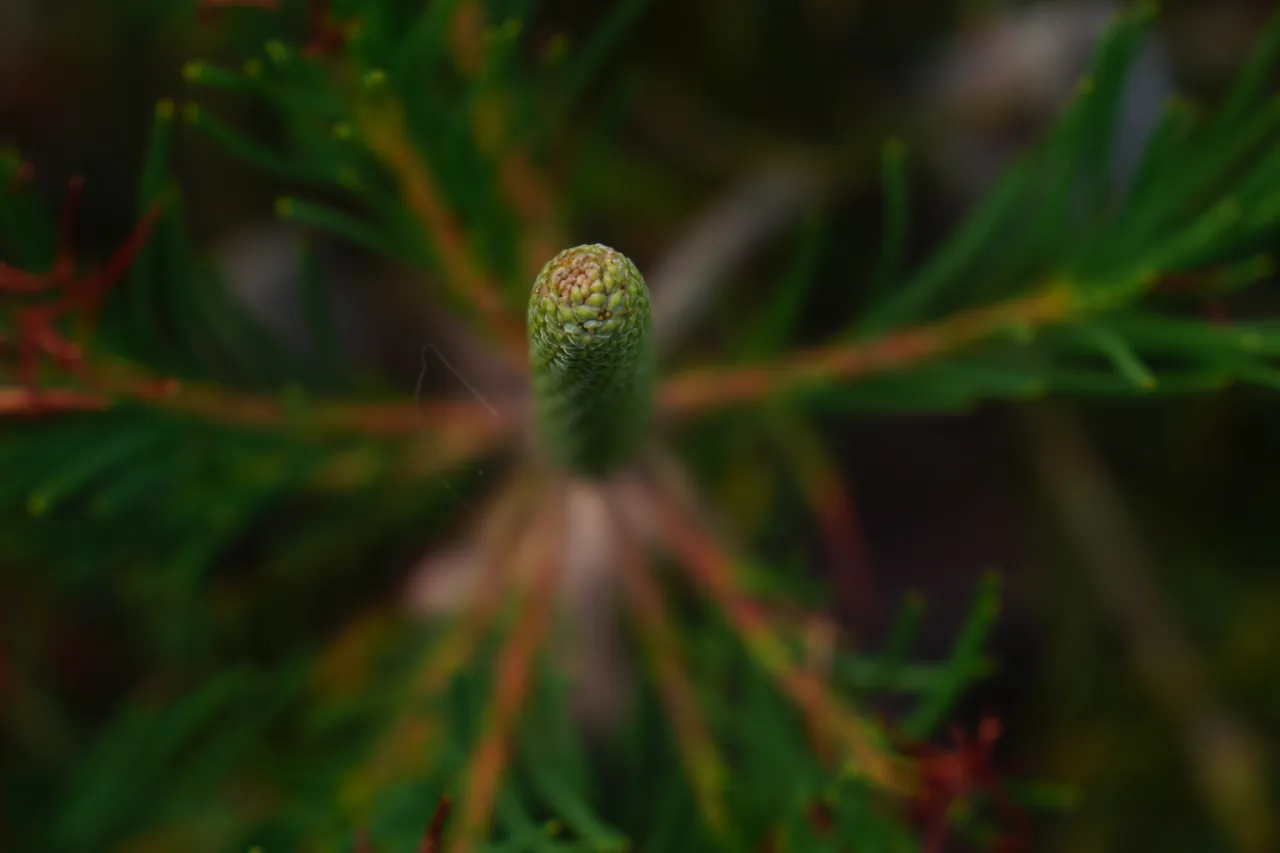
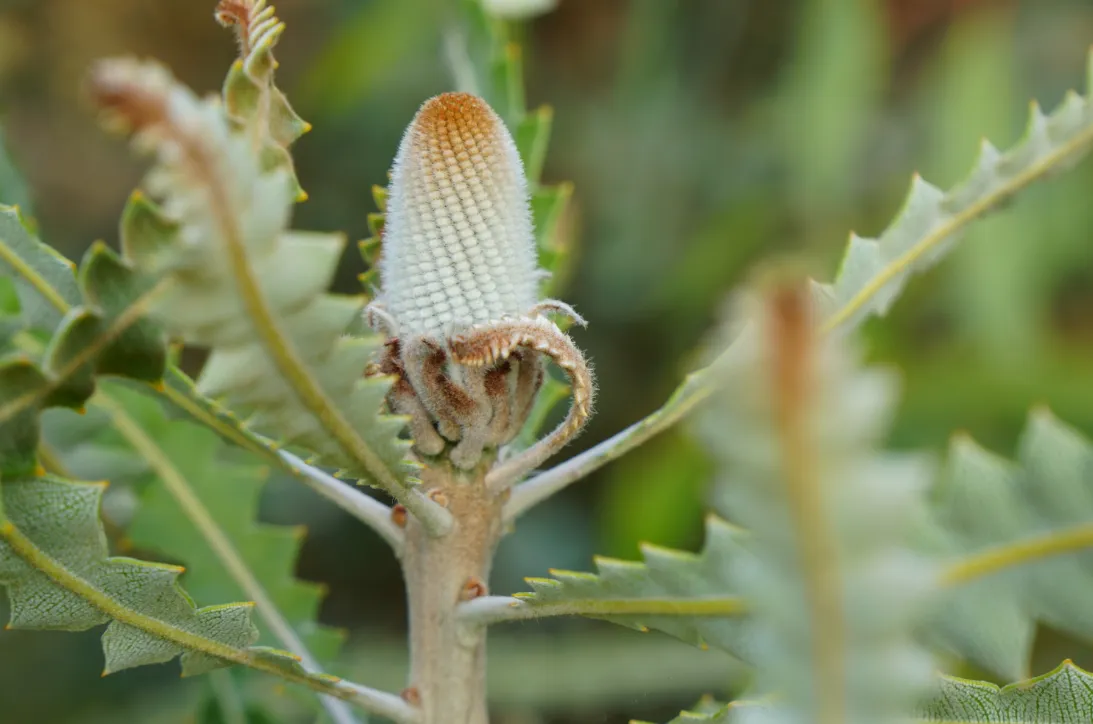
In the shade of the elders, fat berries hang like the earrings of whores - ready to fall in a tostle of blackbird mating and starlings who steal whatever is left of the chicken feed.
The end of a row of pines has been severed from their stumps, where fox dens collapse and battleground dugouts where vulpine generals plan summer offensives on the disappeared poultry. Not only is their hideout torn asunder, but any regroup foiled as their poultry prey has disappeared, taken to be babysat by a pigeon loving horticulturalist with a hot wire and netting to ward off attacks from the ground and the air. No longer can one hear the squawk of mother hen as she calls her chicks to count, nor the disgrunted marans clucking at those below them on the ramp that leads down from their nesting boxes. A garden without chickens is a sad one. Like the limbs of the pines that sit drying in the woodpile, the memory of what was - trees, birds - fills the air like ghosts. The resinous pine, the acrid droppings.
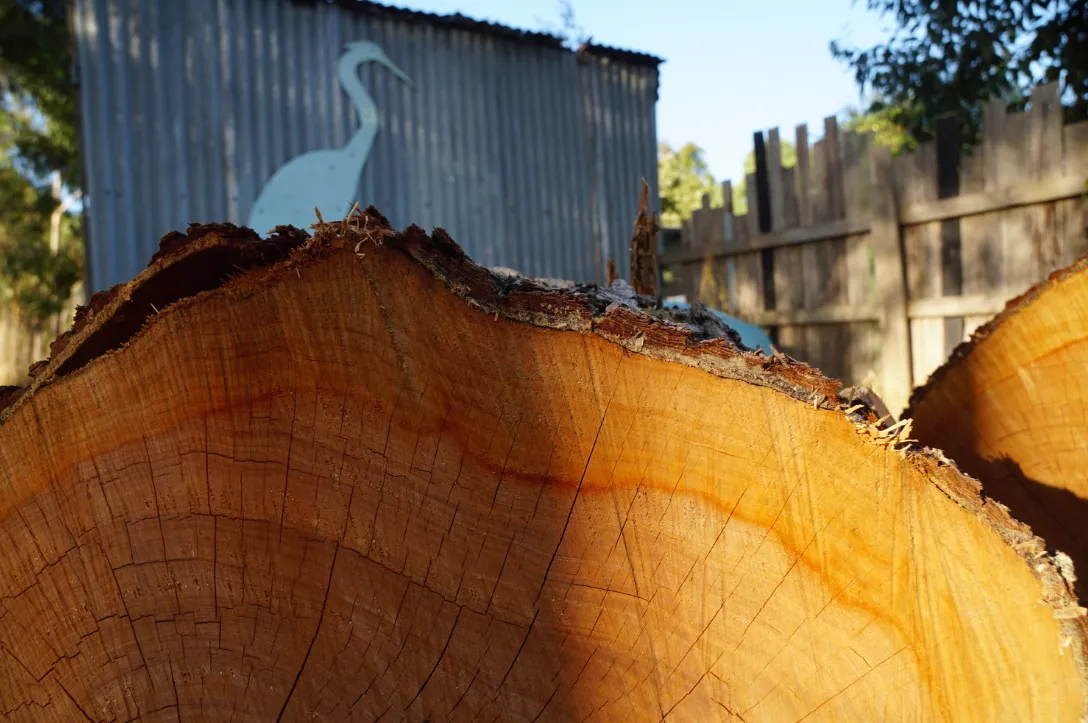
Whilst fat apples bloat like the bellies of green men in the woods, full of rotting things and wetness from unusual rains, the plums were stripped bare by Major Mitchell cockatoos, rude and pink eyed squawking assholes that disturb the golden hour with their clawing and shrieking. When God was dealing birds like jokers in a pack of fluttering cards, he send the pretty birds to England, red robins and wrens, and the violent piercing ones to Australia, perhaps thinking no one would hear them, so far were we from civilization. Now they make lullabies for convicts and migrants. On the beaches on the southcoast of New South Wales, dead gang gangs wash up on beaches, unable to escape the smoke from a nine month fire season begun way too early. These black cockatoos are in a different class to the white plum stealers - they are messengers, signing it will rain, or to be wary of storms. They are spirit birds.
The bees have not gifted honey this year, but on the radio, an entomologist fills his audience with hope. European honey bees might make honey, but they are not the only pollinators - many other insects of less fame do a damn fine job. Though thousands upon millions upon trillions of insects lost homes, wings and hard shiny skeletons in the fires, they will be back, and more besides. The world might belong to insects soon, and for that we should rejoice, though gardeners plot round up assaults and forgot that they have their place too. The bees squirrel into the yellow skirts of the gums, whose roots sneak down twelve foot deep into the clay pan below which squelches wetly despite the scorched earth above. Ten years ago, this land a white hankerchief - now, it's embroidered with forest and undergrowth. Plant trees, my friends, plant trees. They say best time to plant trees was twenty years ago. The second best time is now.
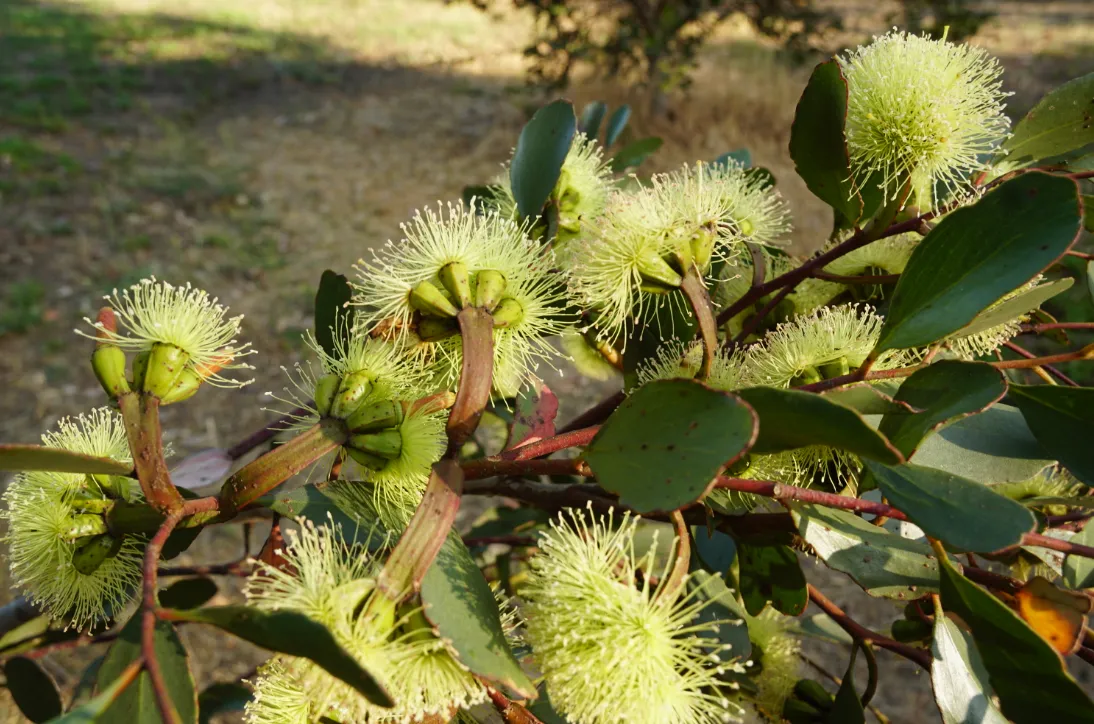
Gardeners in these parts have been lamenting it has been a bad year for tomatoes - despite early hot spells, there has been weeks of cool nights, and they fail to blush when the skirts of green are lifted. Still, in the microclimate sided by corrugated iron a new variety deepens crimson and sweet, and the most beautiful black russian this gardener has eaten was plucked and scoffed in secret, because it was she that grew it, and why not - not all harvest makes it to the plate.
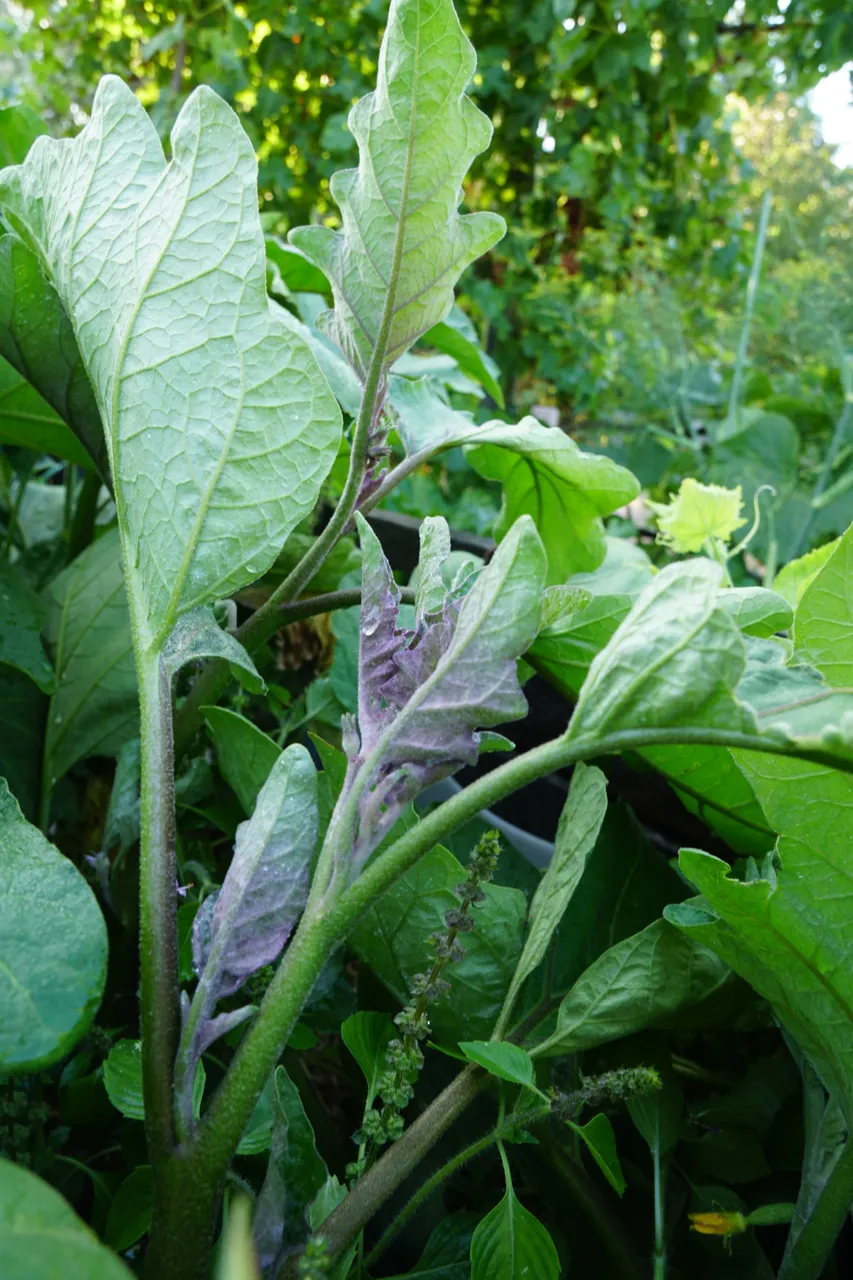
She worries about her garden, when she scratches itchy feet to go to northern hemispheres. It's the price one pays for migrant blood and a nomadic heart, tangled through with a desire to keep roots in the same soil. There's always a tension, like the tightrope wire strung between the seasons. Even the seasons are shifting and not to be trusted. Whilst housesitters might ordinary cope with watering the wilting foliage, can they cope with late season heatwaves, with trees coming down in strong winds, with soursops spreading seeds and the grevillea tendrilling over the paths? Will the nettle break it's confines, tamed usually in tea pickings, and will the last of the comfrey leaves be draped in layers of compost?
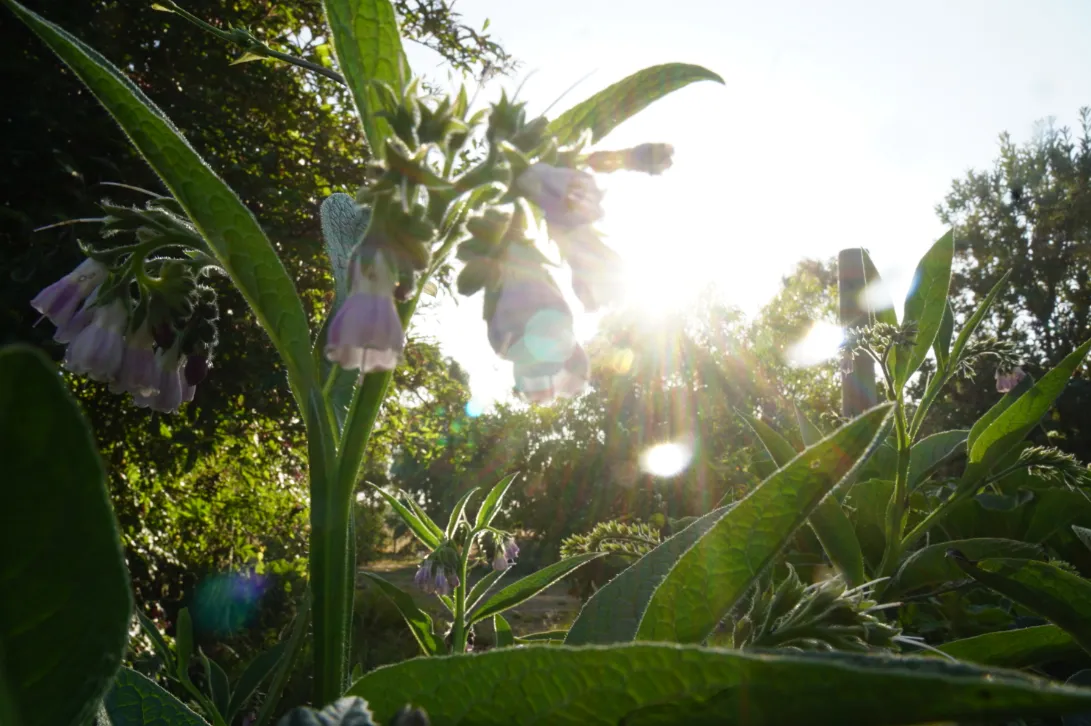
Everything is a tangle - her heart, the pumpkins with the orach and the sunchokes. The wolf bines clutch at kohlrabi and break skin into bleeding welts. The wicking beds birth basil and eggplant, tomato and lettuce, but she cannot find the cucumbers she was sure she planted. How do other gardeners plant such neat and unwild rows, where everything is labelled and tied back and accounted for? Perhaps our souls are written large on personal landscapes like this. Her neighbour poisons everything, cuts neat vegetable patches and covers them in winter, whilst she tied her hair back and struggles with everything overgrown like the briars around Beauty's castle where she lies sleeping. There's a mulberry only just planted where a pumpkin vine grows - she didn't plant it, but she's glad it planted itself - it keeps the soil cool underneath. The fallen greengage plums have made a forest to the east - why cut them down when all trees are sacred?
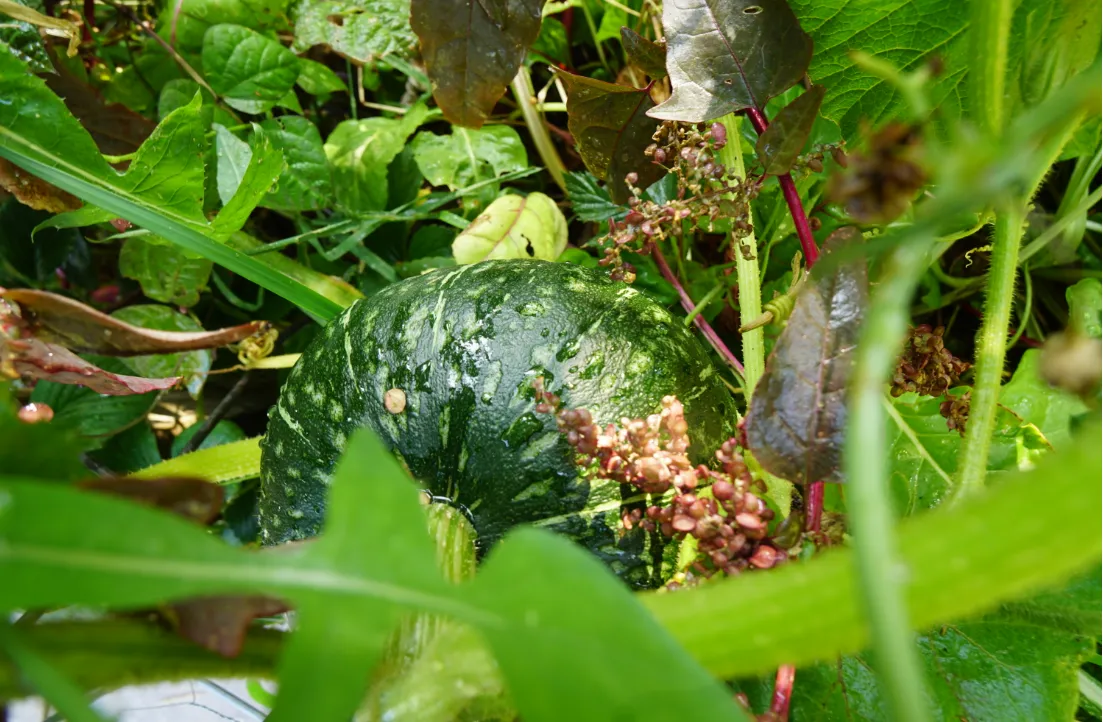
The grape vine only bears grapes for the birds - she likes to grow food for them, and for the bees too, who dance on the umbrella flowers of fennel, coriander and parsley. So much will self seed this year, whilst she's gone - she expects decidedly unneat chaos - skinny fennel bulbs pushing up next to clumps of garlic, silverbeet and beetroot leaves having salad days with freckled lettuce. She must tell the housesitters to let it grow this way - how devastating it would be not to have a suprise of kale or an other haunting of unidentified brassicas.
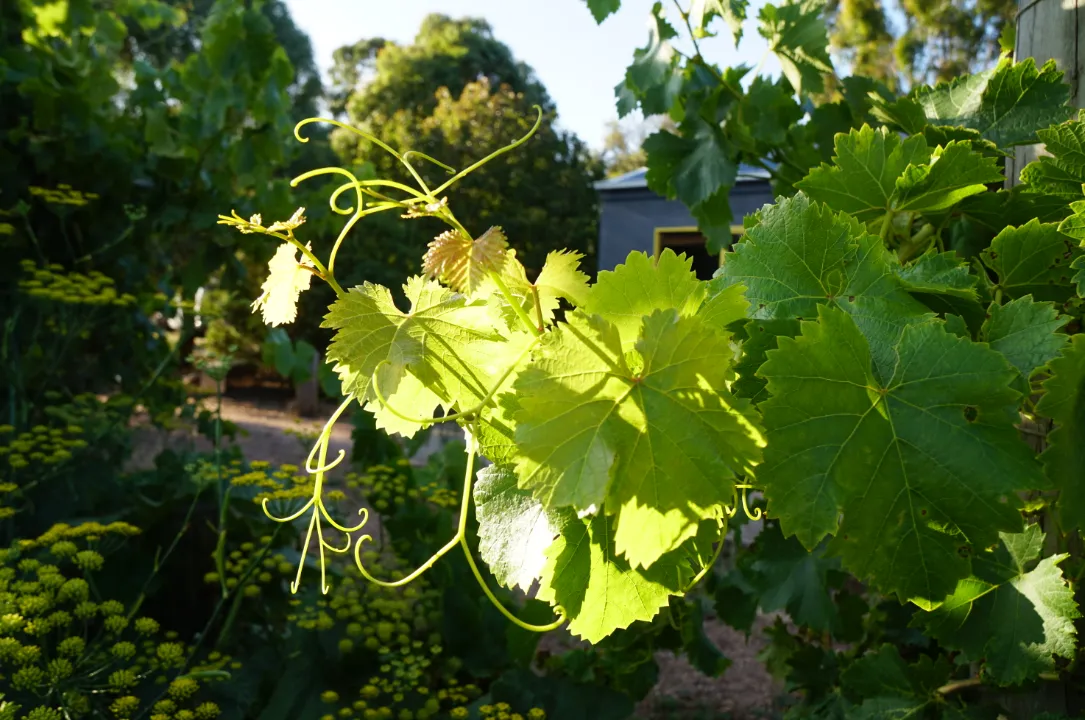
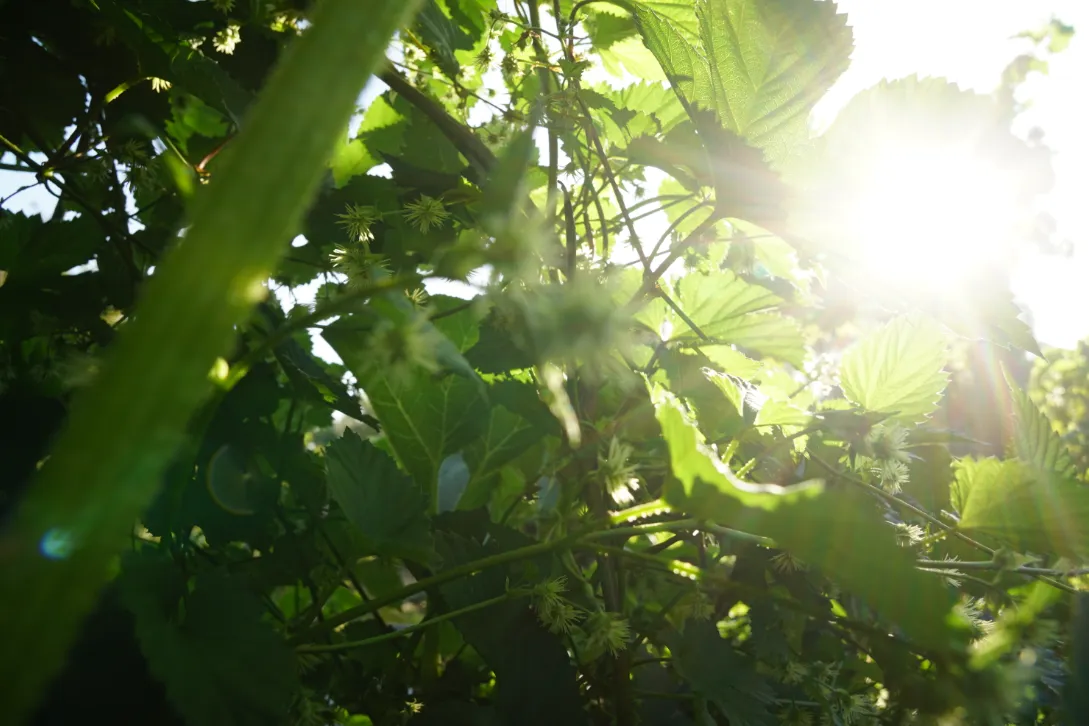
It does not matter, she supposes. Things will grow or die. Perhaps a machete will be needed to cut through the jungle, perhaps the weeds will need to be dug out, perhaps the hands will need to get dirty again, the soil working it's way into the crevasses of fingerprint whorls, the bacteria, the ants biting, the sun bearing down it's heart breaking light as the kookaburras and the shy white goshawk are surprised when she returns again.
And maybe even the yukon she planted will survive, and the horseradish too. Somethings need tending, and some don't. Things will go on despite her absence. She thinks of what an exciting adventure coming back might be.
This post is in response to the monthly garden challenge hosted by @simplymike. Anyone can join in - it's a real delight to see what is happening in other people's gardens. I'm leaving mine for eight months whilst I travel, but I'll try to support the tag perhaps by featuring the gardens I visit whilst away!

@naturalmedicine II Discord Invite II #naturalmedicine

